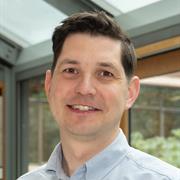
Dr. Nick Brown
Details
-
Department: School of Engineering
-
Campus: City Campus Australia
-
nick.brown@rmit.edu.au
-
ORCID: 0000-0002-2562-2258
Open to
- Masters Research or PhD student supervision
- Industry Projects
- Media enquiries
- Collaborative projects
- Join a web conference as a panellist or speaker
About
As a national leader in humanitarian engineering education, Dr Nick Brown is dedicated to leveraging engineering to tackle complex global issues, including poverty, inequality, and sustainability. His work focuses on empowering engineers to meet community needs both in Australia and internationally. At RMIT University, Dr Brown co-leads the Humanitarian Engineering Lab, where he drives innovative teaching and research at the crossroads of design, technology, and social change.
Dr Brown's excellence in education is demonstrated through receipt of numerous awards, including an Australia Award for University Teaching, three Engineers Australia awards, three RMIT University Vice Chancellor’s awards, and four STEM College and School of Engineering teaching awards. As a Fellow of the Higher Education Academy (UK), an elected committee member of the Australasian Association for Engineering Educaiton and a member of both the International Federation of National Teaching Fellows and Engineers Australia, he maintains a prominent presence in the academic community.
Immediatly prior to his tenure at RMIT University, Dr Brown served as the Research Lead at the not for profit organisaiton Engineers Without Borders Australia. In this role he spearheaded groundbreaking humanitarian engineering education and research initiatives. These efforts generated critical advancements in knowledge and technology for sustainable development.
Dr Brown completed both his master's and doctoral studies in civil and environmental engineering at the University of Edinburgh, UK.
Media
Research fields
- 401004 Humanitarian engineering
- 401002 Engineering education
- 4011 Environmental engineering
UN sustainable development goals
- 1 No Poverty
- 4 Quality Education
- 6 Clean Water and Sanitation
- 7 Affordable and Clean Energy
- 10 Reduced Inequalities
- 13 Climate Action
Academic positions
- Academic Lead - Learning and Teaching Innovation
- RMIT University
- School of Engineering
- Melbourne, Australia
- 1 Feb 2024 – Present
- Senior Lecturer
- RMIT University
- School of Engineering
- Melbourne, Australia
- 1 Jan 2022 – Present
- Lecturer
- RMIT University
- School of Engineering
- Melbourne, Australia
- 1 Jul 2019 – 31 Dec 2021
- Lecturer (Industry Fellow)
- RMIT University
- School of Engineering
- Melbourne, Australia
- 1 May 2018 – 30 Jun 2019
Non-academic positions
- Research Lead
- Engineers Without Borders Australia
- Education & Research
- Melbourne, Australia
- 1 Apr 2014 – 30 Apr 2018
Supervisor projects
- Climate Justice and Wet Cities in South-West Coastal Bangladesh: Assessing Vulnerabilities and Advancing Equitable Adaptation Strategies
- 18 Jul 2024
- Uncrewed Aerial Systems solutions for Humanitarian Action
- 20 Dec 2023
- The role of social enterprise in post disaster reconstruction
- 4 Jan 2023
- Approaches, technologies, and tools for water services in Timor-Leste
- 22 Dec 2022
- Engineering for humanitarian action: challenges and opportunities for the application of frontier technologies in humanitarian contexts
- 21 Feb 2022
- Unpacking Intersecting Complexities in Water, Sanitation, and Hygiene Programs for Challenging Contexts
- 22 Apr 2021
Teaching interests
Dr Nick Brown is an experineced educator who set about developing his scholarship of teaching and learning to deliver authentic, high quality, transformational experiences that will stick with learners long after graduation. Dr Brown grew his teaching philosophy on the concept of learners working alongside experts on real-world problems, without being constrained by past engineering thinking. He ensures his teaching incorporates lived experiences from industry as well as ongoing action research. Dr Brown has developed and delivered teaching for a rnange of levels incldiung bachelor honours (AQF level 8) and master (AQF level 9) whilst also supervising several Doctoral Degree candidates (AQF level 10). Dr Brown coordintes courses of varied sizes and composition of learners; for example, an introductory core course has over 1,200 learners, mostly men (85%), whilst specialist elective humanitarian engineering courses are much smaller (˜ 25 learners) with a gender balance (60% men) more reflective of society. Dr Brown has taught in fully on-campus mode, fully online (during COVID lockdowns) as well as more recently in blended mode. When coordinating courses with over 1,000 learners Dr Brown utilises skills in management, leading a teaching team of 32 educators.
In recognition of the evolving field, Dr Brown has developed a new minor in Humanitarian Innovation, which offers students interdisciplinary opportunities to explore sustainable solutions in global settings. Dr Brown is responsible for integrating experiential learning as the signature pedagogy into humanitarian engineering programs, fostering a hands-on approach that equips students with practical skills to address global challenges. Through these efforts Dr Brown is positioning RMIT University as a leader in humanitarian engineering education, ensuring graduates are well-prepared to make a meaningful impact in the world.
Research interests
Dr Nick Brown has varied Research Interests including:
- Humanitarian Engineering: Applying engineering mindsets, skillsets, and toolsets to pressing global challenges in disaster and development.
- Engineering Education: Advancing teaching methods to inspire the next generation of engineers.
- Education Innovation: Developing new approaches to enhance learning outcomes.
- Water, Sanitation, and Hygiene (WASH): Improving health and quality of life through access to essential services.
- Emerging Technologies: Investigating cutting-edge tools and their applications in humanitarian contexts.
- Cookstoves: Enhancing design for efficiency, human health and environmental impact.
- Non-engineered Building Materials: Exploring sustainable alternatives for construction especially in remote contexts.
- Shelter and Housing: Designing resilient and affordable living solutions.
- Complexity: Understanding and addressing intricate systems and problems.
- Environmental Engineering: Promoting sustainable practices for a healthier planet.
- Cemented Granular Materials: Researching innovative materials for construction applications.
- Numerical Modelling: Utilising simulations to solve complex engineering challenges.